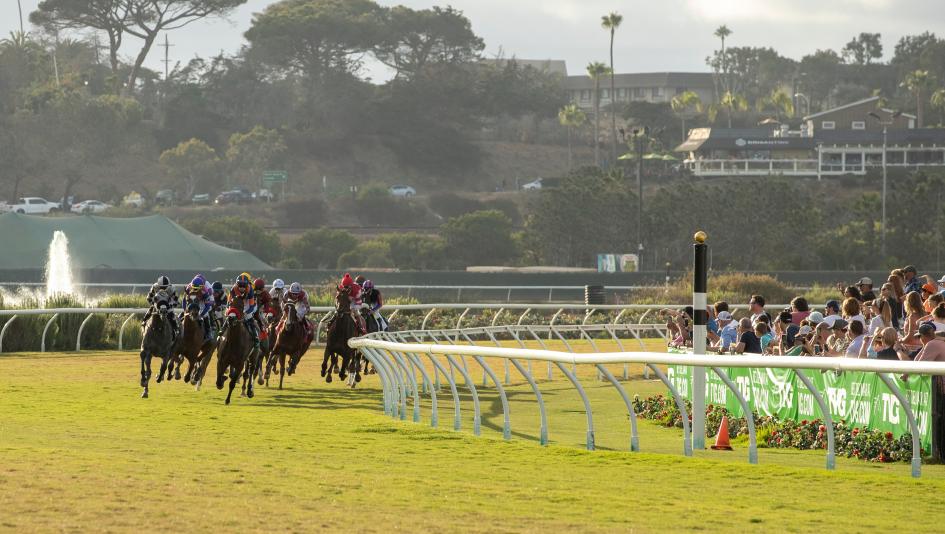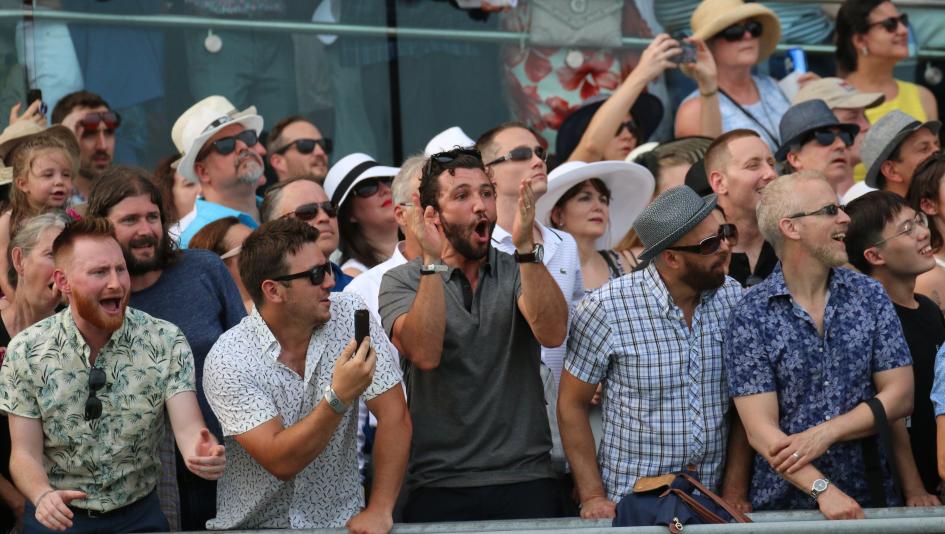There are many inspiring tales in the lengthy and vibrant history of thoroughbred racing, but few can compare to the exciting rags-to-riches narrative of John Henry.
The brave gelding, who raced 83 times throughout his career from 1977 to 1984, went from being a claimer to a two-time Horse of the Year who enjoyed tremendous popularity. He advanced from a $1,100 yearling purchase to a horse that won 39 races and set the sport's all-time earnings record of $6,597,947 - every cent of it before the Breeders' Cup, and its million-dollar purses were introduced. During his eight years of racing, he won 17 Grade 1 stakes races.
He competed at 19 different tracks, including one in Japan, and in a career that can only be described as legendary, he emerged as the most adored Horse of his time.
John Henry came from impoverished beginnings to become a future champion and Hall of Famer.
He was a descendant of Ole Bob Bowers, a little-known stallion who once fetched $900. His son, Once Double, by the Double Jay mare, appeared to be as uninteresting.
In addition to having a shoddy pedigree, John Henry was also small and had conformation problems. When he entered the sales ring as a yearling at the Keeneland January Mixed Sale in 1976, there wasn't much to like about him, especially since he had blood on his forehead from hitting his head in his stall.
John Callaway ultimately paid just $1,100 for a horse that, in his own words, "looked like a drowned rat with blood streaming off his forehead," as he subsequently told Sports Illustrated.
Despite only having the colt for a brief length of time, Callaway recognised just enough of his rambunctiousness to give him the name John Henry in tribute to the famous "steel-driving guy." There were rumours that the juvenile Horse John Henry would stomp the steel feed and water containers to the ground from the wall of his stall.
The unraced John Henry was later entered in another sale and bought by Harold Snowden Jr. for $2,200. The vendor and the buyer had no idea what greatness the Horse would achieve.
During a 1980s interview with the Lexington Herald-Leader, Callaway said, "When I sold him, it was ten below zero, and nobody was there." "No one imagined he'd be able. I chuckle. However, I want to cry.
John Henry won a four-furlong maiden race at Jefferson Downs on May 20, 1977, and was eventually gelded to control his cantankerous disposition.
He failed to win in his subsequent three outings, but two races later, he won the Lafayette Futurity at Evangeline Downs in an allowance race. But a long losing slide that lasted ten starts would come after that stakes victory.
But everything changed when Sam Rubin purchased him for $25,000 in May 1978, sight unseen. Rubin used the alias Dotsam Stable, a combination of his and his wife Dorothy's first names.
Robert Donato, a trainer, received John Henry. On May 21, 1978, he made his debut for Rubin and immediately paid off by winning a $25,000 claiming race at Aqueduct.
Donato made one of the wisest choices in racing history not long after that. Donato entered John Henry in a $35,000 claimer on the grass at Belmont Park because he thought he had a future on the field.
Fortunately for Rubin and Donato, no one was interested that day as John Henry easily won by 14 lengths.
Next time out, he won an allowance race and soon competed in grass-stakes races. He destroyed eight challengers by 12 lengths in the Grade 3 Round Table Handicap at Arlington Park, his fourth attempt at a stakes race on turf.
After being sent to trainer V.J. "Lefty" Nickerson in 1979, John Henry was sent to California later that same year and given to trainer Ron McAnally. A good horse became a superb one while in McAnally's care. In his first three races for McAnally, John Henry finished second twice and won once. After that, he raced off six straight victories in graded stakes races, including three Grade 1s.
In the fall of 1980, he returned to New York and won the Grade 3 Brighton Beach Handicap for Nickerson. John Henry, who won the 1980 Belmont Stakes, switched from grass to dirt in the Grade 1 Jockey Club Gold Cup at Belmont Park, where he was a 3-5 favourite and came in second against Temperence Hill.
John Henry won the first of seven Eclipse Awards for his achievements and was chosen as the best turf male of 1980. (including two Horse of the Year titles).
Following his victory in the Grade 1 Turf Classic at Belmont, John Henry was advised to run in the $400,000 Ballantine's Scotch Classic at the Meadowlands, which was his chance to qualify for the Breeders' Cup.
After winning the Turf Classic and Ballantine's by a combined margin of 2 3/4 lengths, John Henry collected an additional $500,000 in bonus money. Rubin then grudgingly agreed to make an initial payment of $133,000 to enter John Henry in the Breeders' Cup.
But it never took place.
John Henry's season was finished because of a torn ligament in his left foreleg.
The gelding, who was not present at Hollywood Park for the seven-race series, received the 1984 Horse of the Year award as a sign of the great esteem people had for him, even after the spectacle of the Breeders' Cup.
Rubin had planned to have John Henry back in the races by age 10, but the magnificent gelding injured his tendon during training. Rubin declared he would give all of the Horse's earnings to charity if the Horse made a comeback in 1986. John Henry, however, was once more unable to take the physical strain of racing and retired before attempting another race.
John Henry was given to Rubin and spent the rest of his life at the Kentucky Horse Park in Lexington.
The gelding received the royal treatment in retirement, and thousands of people came to see him every year.
In 2007, his remarkable life came to an end. He was in poor health due to kidney issues and dehydration, and on October 8, he was put to sleep at the age of 32.
"He increased crowd sizes by a factor of two wherever he competed. He gave racing so much even after he stopped competing that it would be impossible to replace him. He will never leave our hearts and will be terribly missed "At the time of the grand champion's passing, jockey Chris McCarron, who rode John Henry in the gelding's final 14 races, had this to say.
Longtime racing fans still vividly recall John Henry today, more than 35 years after his last race, and they will never forget the fantastic thrills he delivered year after year after year.
For them, the people's champion will always be the gelding who went from poverty to wealth.



Login To Leave a Comment